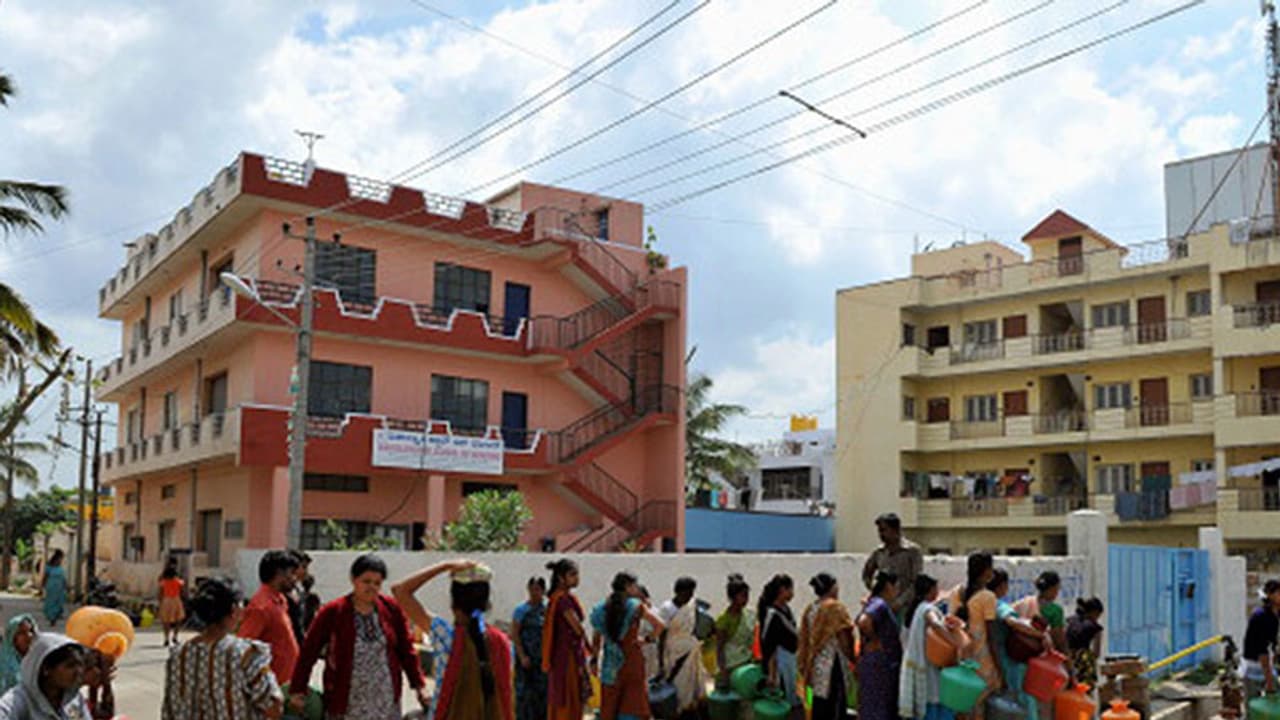Water levels in the Krishnaraja Sagar (KRS) and Kabini reservoirs are nearing dead storage. BWSSB has attributed this to an increase in demand for Cauvery water owing to rising temperatures and failed borewells

Recently, the Karnataka government had promised uninterrupted water supply to the city despite low water levels in reservoirs that hold Cauvery water. However, water shortage is imminent with water levels at Krishnaraja Sagar (KRS) and Kabini reservoirs are nearing dead storage.
Back in November 2016, the Bangalore Water Supply and Sewerage Board (BWSSB) had dropped hints how come summer, the city will be facing an acute water shortage. Arming itself for the water scarcity the Karnataka government had mooted a contingency plan to draw water from the dead storage of the Krishnaraja Sagar (KRS) at an estimated cost of Rs 40 crore. The KRS’s water is used by Mysuru, Bengaluru and the Mandya region. Tapping dead water storage is one of the last measures to be taken in times of a water crisis.
Now, according to a report in the Times of India, residents have already started complaining of low pressure in the water supply or contaminated water. Even the time limit of the water being supplied has been noticed to have been lessened from three hours to two hours in some places.
BWSSB chairman Tushar Girinath has attributed this to an increase in demand for Cauvery water owing to rising temperatures and failed borewells. The BWSSB plans to look into the matter of failed borewells in Bengaluru core and CMC area to find a solution to the water problem and also employ private water tankers to supply water to areas that face acute shortage during summer.

Girinath stated that they had been pumping between 1,300 and 1,350 million litres of water a day in February and March and assured that they had enough water to meet the needs of the city. However, the shortage, he says has been because of non-equitable distribution. Water shortage and low pressure are being caused as the board has been distributing water to starved areas such as slums, which rely mostly on borewells, by cutting down on the supply to areas, getting surplus.
Last month, Water Resources Minister MB Patil had mentioned that authorities were also planning to announce water rationing. “Implementation of the Mekedatu project would be the only long-term answer to quench thirst of the growing city in the days to come,” he said. And now while residents have accused the BWSSB of practicing water rationing the board has declined.

Not to sound ominous but an ongoing study by a team of researchers from the Indian Institute of Science (IISc) has indicated that Bengaluru will be looking a dry future if something is not done about it immediately. The study pointed out that the Cauvery water dispute will also affect the city’s water needs because of increasing dependence on piped water. This apart, the study points out that wastage due to leakages and indiscriminate use by people is also adding to the growing problem.
Meanwhile, in order to combat the water scarcity, citizens need to pay attention to the BWSSB mandate on managing water resources carefully. The Water Board had made it mandatory for all apartments with more than 20 housing units to install sewage treatment plants.
